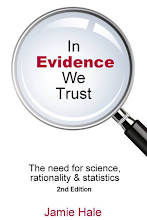It was my pleasure to
speak with Joanne Manaster (A.K.A. the "Science Goddess") about her passion- Science.
Do you have a
favorite video you have done?
I have several that I
am glad I have done, but my "Blood Cell Bakery" series is one of my favorites
for the material shared and the deliciousness of the cookies! I also had great
fun filming "Cats in Sinks" as an exercise in describing basic
concepts that scientists use, primarily that of using models in science to get
to information somewhere between theory and direct experimentation. Involving
my kids and one of the family cats at the time was also enjoyable.
Why does Joanne
love science? Why should others love science?
My site was developed
in a time when there were many challenges in my life and during a period of
self-examination, I basically asked myself what would NEVER change, no matter
the circumstances, and that was "Joanne Loves Science", because I
always had, since I was young, found myself fascinated by the wonders of the
world and universe.
As far as others
loving science, it certainly would be ideal, but others might contend that
people should love "accounting" or "history" or just about
any other topic. Even if you are not in a place to love a particular topic, you
should have enough appreciation for how the topic works to make it useful to
your life.
What are your
thoughts on the new Cosmos? How does it compare with Sagan's
version?
I watched Sagan's
Cosmos in high school and really enjoyed it. There was a depth to Carl Sagan
that was palpable, and something about him was worthy of looking up to and
emulating. He really brought something smart to TV.
I've only seen the
first two episodes of the new Cosmos. It is certainly beautiful and full of
information. I've heard from science teachers about the enthusiasm it is
stirring up among their students, so that is a positive sign!
What
is the biggest (or at least one of the biggest misconceptions) misconception
about science?
The biggest misconception I
encounter is that "Only smart people can do science" or "Only
smart people like science". Many people who hold this perception perhaps
were surrounded by others (teachers, parents, friends) who didn't like science
or felt they 'weren't good at science' when they were young. Kids pick up on
reticence like that, especially from their elementary school teachers, many of
whom have humanities leanings. These exposures color their view of science and
leave them too intimidated to even attempt to engage in science, assuming they
won't understand it. Very often, it takes the influence of someone who is
interested in science and passionate about it to reverse other input from a
person's early years. I think that is what most science communicators are
trying to do.
Where
do you see yourself in five years?
I
would hope that I can continue traveling the world to do more science outreach.
I am beginning to turn my eye towards promoting science as a force for good,
much as The Gates Foundation is doing, and may even work on a video series showcasing
how science is improving the lives of so many in the world, especially in the
developing world, and the special challenges faced to implement scientifically
sound ideas and technologies in those areas.
What
projects are you currently working on? Are you modeling any these
days?
Modeling
is way in the past. It is definitely a young person's field and I don't have
time amidst my job and outreach to be hunting after modeling gigs. However, if
I were offered an appropriately science themed commercial or PSA, I would
consider it.
In
addition to my position at the University of Illinois as a faculty lecturer for
the Online Master of Science Teaching Biology program for high school and
middle school teachers, writing for SciAm, and sharing very cool science with
the public on social media, my latest project is one called "Read
Science!" where my cohost Jeff and I interview authors of popular science
books. Some of our notable guests include Mary Roach, Buzz Aldrin, E.O. Wilson,
Temple Grandin and Chris Hadfield. It is such a pleasure to speak to these
articulate and intelligent folks who reveal a lot not only about the topic they
wrote about, but how to go about communicating to the general public the
concepts of science that can be tricky to grasp at times. I am thrilled they
will take time out to speak to us!
To
learn more about Joanee check out her site Joanne Loves Science




